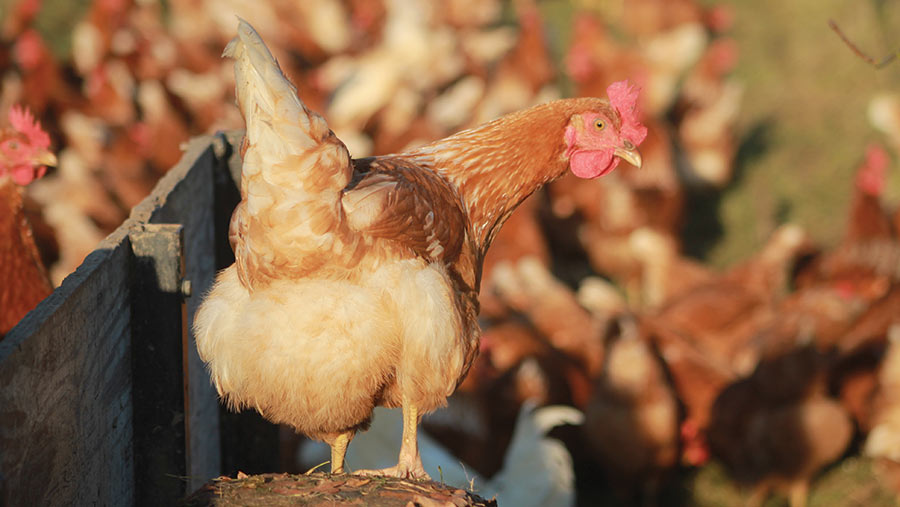How Stonegate combats aggressive pecking without beak trimming

Producer packer Stonegate has been recognised for its work with supermarket Waitrose to reduce the need for beak trimming – and boost flock health overall.
Introducing enhanced management while birds are in rear has been a key component. Today, none of the organic eggs going to Waitrose are from beak-trimmed birds, and nor are 85% of conventional laying hens.
This success has been brought about by a number of enrichments that, having proved successful in the premium tiers of Waitrose’s offering, are now being trialled in conventional units.
See also: Dark brooding pullet rearing helps free-range hens
It first introduced organic pullet rearing for Waitrose’s branded “Duchy originals” organic eggs in 2003, having taken advice from the Soil Association. Stonegate remains the only commercial packer to be following this programme.
How Stonegate is working to reduce the likelihood of feather pecking
- Pullets have access to range from 10 weeks at the latest – Stonegate has found this improves bone strength, foraging and ranging behaviours when in lay, and cuts the risk of feather pecking.
- Dark brooding also appears to reduce the risk of feather pecking, thereby improving feather cover.
- Early access to perches improves bone strength, and helps birds learn how to navigate in a three-dimensional space. It is thought this could reduce keel bone fractures.
- Incentivising farmers and passing on knowledge through group talks gives the confidence required to make changes in rearing.
The supermarket has committed to ending beak trimming within its supply chain, regardless of any potential legislative changes.
A key component is allowing birds access to the range at no later than 10 weeks of age. Feedback from farm managers has suggested hens in lay will subsequently range sooner and display less fearfulness when transferred to laying sheds. Cover for pullets is provided at a rate of 12 shelters per 2,000 birds.
Affording pullets range access is not without a cost, however – put at about 15% above conventional rearing costs. While this is absorbed by the organic premium, a next target is delivering this measure to conventional free-range flocks.
Dark brooding
Another measure introduced across Stonegate’s organic lines that is now being trialled on conventional pullet-rearing operations is dark brooding.
The idea behind this is to give young birds a space akin to that under their mother’s wing. It provides a warm, quiet place for chicks to rest, away from their more active counterparts.
Stonegate says the success of the brooders was instant. Farms found better feather cover at 16 weeks, and birds were more docile and friendlier. Another positive was energy saving, brought about by the need to maintain an 8C temperature differential between the dark brooding area and the rest of the shed.
A final change has been incorporating perches or tiers to pullet sheds, allowing birds to learn how to navigate buildings safely while they are young. Stonegate introduces A-frames gradually throughout rearing – research supports that doing so can improve bone strength. The consequence may be fewer fractures and reduced floor eggs when birds come in to lay.
The measures introduced to organic pullet rearing, and the subsequent trialling of some of them in more commercially-oriented units, has been recognised by Compassion in World Farming, which made Waitrose its retailer of the year in 2015.
